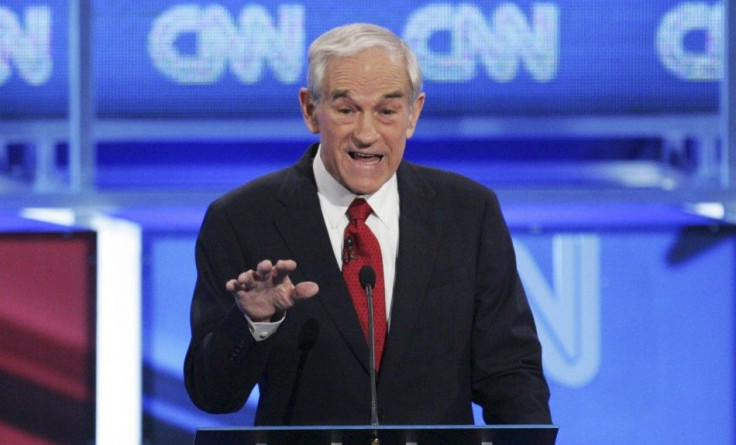Ron Paul 2012: A Remarkable Rise to First Place in Iowa

Ron Paul has overtaken both Newt Gingrich and Mitt Romney in the latest poll ahead of the Iowa caucuses, which will be held on Jan. 3.
Paul has the support of 23 percent of the likely Republican caucus-goers surveyed by Public Policy Polling, just ahead of Romney (20 percent) and a rapidly falling Gingrich (14 percent). Michele Bachmann, Rick Perry and Rick Santorum are tied for fourth place with 10 percent each, and Jon Huntsman and Gary Johnson trail with four percent and two percent, respectively. The margin of error is plus or minus four percentage points.
Romney does have one potential advantage in that, among those voters who said they might still change their minds, he's the second choice of 19 percent, compared to 13 percent for Paul. He's at a disadvantage, though, in that his supporters are less committed than Paul's, and some of them may change their allegiance to another candidate in the two weeks remaining.
The poll results showcase a remarkable rise by Paul, who has exemplified the slow and steady growth campaign model, in contrast to the sudden rises and falls of the four other non-Romney candidates -- Michele Bachmann, Rick Perry, Herman Cain and Newt Gingrich -- who have held leads in Iowa.
Throughout this incredibly volatile race, Paul has focused on grassroots campaigning, reaching out to more voters on the ground than any other candidate, and not just Republicans. Romney actually leads Paul, 22 percent to 19 percent, among registered Republicans in the PPP poll, but Paul makes up for it with strong support among Democrats and independents who plan to participate in the Republican caucuses.
And now, two weeks before the caucuses, Paul's efforts seem to be paying off.
Paul's ascendancy is a sign that perhaps campaigns do matter at least a little, in a year where there has been a lot of discussion about whether they still do in Iowa, a Public Policy Polling press release said.
Over the weekend, Romney received a highly anticipated endorsement from The Des Moines Register, which singled out his main challengers, Gingrich and Paul, for criticism. Newt Gingrich is an undisciplined partisan who would alienate, not unite, if he reverts to mean-spirited attacks on display as House speaker, the newspaper's editorial board wrote. Ron Paul's libertarian ideology would lead to economic chaos and isolationism, neither of which this nation can afford.
But it's impossible to say how much the backing of The Des Moines Register will mean in a race in which Romney has been unable to break 30 percent in the polls, even with the lion's share of prominent endorsements.
While many people support Romney because they believe he has the best chance to beat Barack Obama next November, those who support Paul support him because they believe fiercely in his platform -- and that gives him an advantage beyond the numbers.
The Ron Paul voters we've measured are the most dedicated voters, David Paleologos, the director of the Political Research Center at Suffolk University in Boston, told IBTimes earlier this month. Come hail, sleet, snow, whatever, they're going to be at those caucuses and they're going to be out there in full force.
Paleologos noted that it's especially important to have dedicated supporters in states that hold caucuses rather than primaries, because caucuses are more time-consuming and require more active participation. If the weather is bad on Jan. 3, voters who are only halfheartedly committed to a candidate may stay home, but voters as passionate as Paul's supporters will still turn out.
If Paul wins Iowa, all eyes will turn to New Hampshire and South Carolina to see whether he can translate that victory into broader support at the national level.
It's going to be challenging for him to win the nomination, but it's not out of the question, Jamie Chandler, a political scientist at Hunter College in New York, told IBTimes. His brand of libertarian Republicanism is only now building real roots within the party, but primarily among younger voters who turn out less in primaries and caucuses. Hypothetical match-up polls, on the other hand, give Paul as good a chance of beating Obama as Romney if the election were held today.
Paul is electable, Chandler said. His post-New Hampshire momentum depends on how well he parlays it to win subsequent primaries, particularly the Jan. 22 South Carolina race.
© Copyright IBTimes 2024. All rights reserved.











